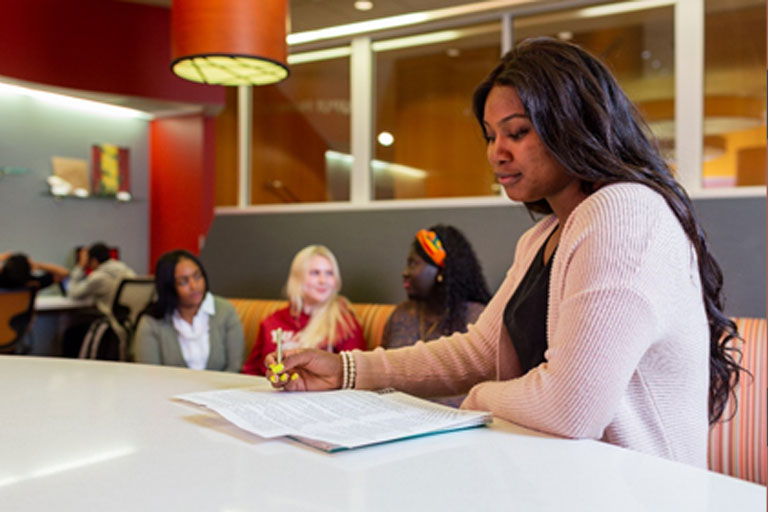Pre-college students typically have finals or tests during the end of the fall semester, but testing schedules run throughout the academic year. It’s important to start thinking about how you can best help your student thrive while taking these tests.
Academic Preparation
- Find the right study method for your student.
According to the University of St. Augustine, there are a plethora of methods that can maximize studying without cramming. These include the SC3R method, spaced practice, the PQ4R method, and the Feynman Technique. Each technique uniquely maximizes ways to learn material more effectively. Increasing study efficacy can make your student more confident, reduce hours spent studying, improve knowledge, and reduce anxiety.
More information on these and other study techniques are included here:
Video: IU’s College Readiness Academy: Study Skills
Article: University of St. Augustine’s Study Techniques
Video: Top 10 Study Tips - Create the best studying environment.
- Minimize distractions.
- Create a calming environment using music (such as instrumental or lo-fi) and lighting.
- Provide healthy snacks that won’t cause a crash of energy mid-study session.
- Suggest your student switch up study locations - research shows that switching where one studies can aid in information recall.
- Help your student keep a study schedule. Encourage studying at the same time every day.
- Remind your student to take small breaks to minimize burnout.
If you or your student are looking for additional tips, check out this article here.
- Find practice exams.
Taking practice exams is helpful because it allows the student to become accustomed to the material. Furthermore, this will help your student not rush through the exam because they are familiar with the format and environment. Practice exams help build stamina, alleviate anxiety and stress, increase information retention, and learn the format of the exam.
More information can be found at ExamEdge.com. - Construct a test-taking ritual.
Habits are central to ensuring that your student takes care of their health. Below are some tips to keep in mind when crafting a ritual to help your student perform at their best on test day.- Ensure that your student gets good, restful sleep the night before.
- Plan and prepare a balanced meal before the exam.
- Have your student stop studying at least 45 minutes before the exam.
- Remind your student to read slowly, underline or make note of key phrases or words that will help answer the questions being asked.
For additional ideas, check out Education Corner’s resources here.
Mental Health and Physical Wellbeing
When we talk about test-taking, we often only focus on the academic preparation needed for students to be successful. Equally important to ensuring student success is encouraging good mental and physical health. Below are a few ways to help your student with mental and physical wellness during finals.
- Maintain self-care. The best way to maintain self-care is to encourage your pre-college student to get a good amount of sleep, stay hydrated, eat nutritious foods, and exercise.
- Do something fun between exams. Activities can be a shift to other non-academic, mental pursuits, or physical activities to get the blood flowing and take the mind off of studying. This allows the student to de-stress and better absorb the material they are learning.
- Establish goals and set boundaries. Set small, realistic goals for each day. These can help your student not become overwhelmed as they are studying for many tests or projects. Encourage your student to set clear boundaries with friends and family during this time so they can prioritize themselves.
Regardless of the practices that you and your student create for test-taking success, it is important that you work together to identify and continue to reflect on what is best for your student.
We want to hear from you!
Is there a topic or resource you’d like to hear more about? We want to share content that is meaningful to you. Share your proposed ideas with Community & School Partnerships by sending suggestions to cpartner@iu.edu.


